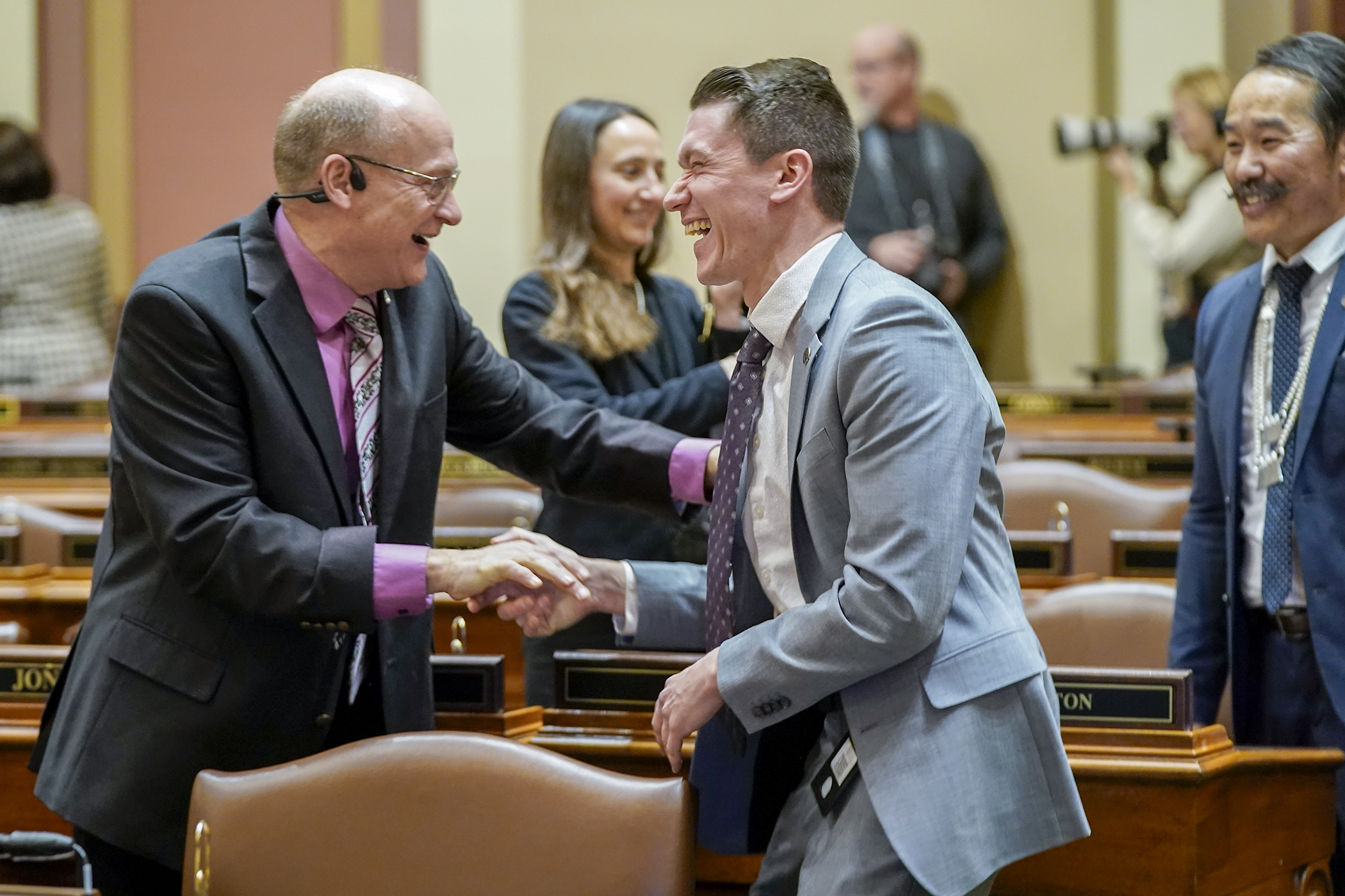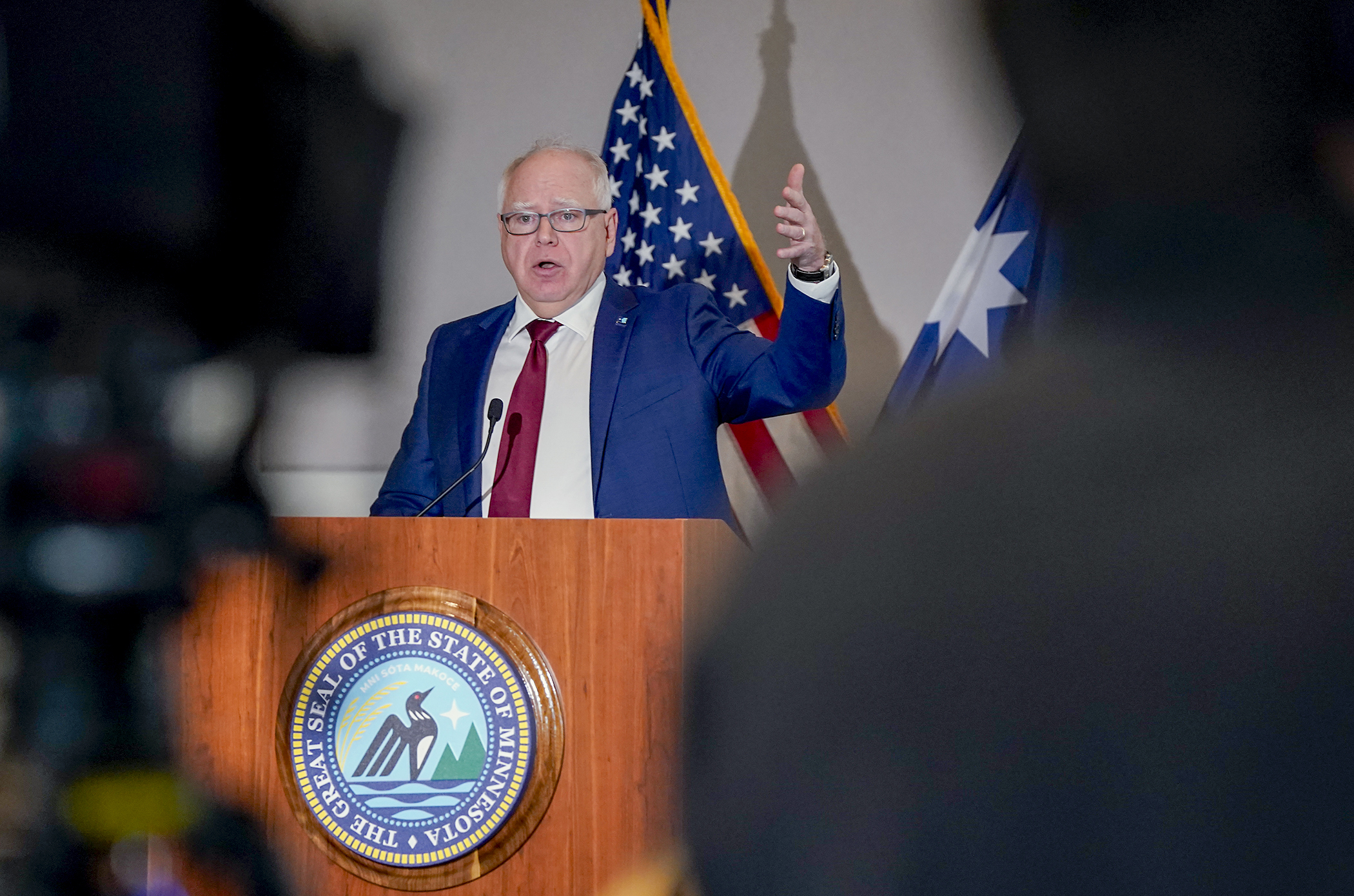Environment division OK’s $61 million in trust fund appropriations
Voting along party lines, a House division approved a $61.4 million package of environmental projects to be paid for by appropriations from the Environmental and Natural Resources Trust Fund.
The House Environment and Natural Resources Finance Division voted 11-7 Tuesday to refer HF4498, as amended, to the House Ways and Means Committee after Republican members failed in a bid to add $1.5 million in wastewater treatment grants for small towns to the bill.
The bill comprises most of the preliminary recommendations considered by the Legislative-Citizen Commission on Minnesota Resources, a 17-member legislative and citizen committee that recommends projects to the Legislature and was created after voters established the trust fund in 1988. The fund uses state lottery proceeds to protect, conserve, preserve and enhance the state’s air, water, land, fish, wildlife and other natural resources.
Rep. Rick Hansen (DFL-South St. Paul), the bill sponsor and division chair, said the package of projects garnered 10 votes on the LCCMR but did not get 12, the super-majority required for approval. However, this isn’t the first time the LCCMR didn’t get enough votes to make a formal recommendation.
“I think this is a good bill,” he said. “I think it responds to the emerging crisis and we’re able as a Legislature to respond quickly to those needs.”
The appropriations in the package include:
- $29.55 million for land acquisition, habitat, and recreation projects;
- $11.84 million for aquatic and terrestrial invasive species projects;
- $8.59 million for natural resource data and information projects;
- $4.26 million to fight the emerald ash borer;
- $4.2 million for projects to protect or restore land, water, and habitat;
- $3.65 million for water resources projects;
- $2.74 million for technical assistance, outreach, and environmental education projects;
- $1.4 million to develop strategies to help municipal wastewater plants, landfills and compost facilities manage per- and poly-fluoroalkyl substances in land-applied biosolids;
- $849,000 to the Science Museum of Minnesota to determine why lakes in pristine areas without obvious nutrient loading are experiencing algal blooms;
- $699,000 for the University of Minnesota to study the ability of coronavirus to travel through wastewater systems, including septic systems, to drinking water sources;
- $573,000 for air quality and renewable energy projects;
- $135,000 for contract administration expenses of the Department of Natural Resources; and
- $133,000 to the University of Minnesota Raptor Center for workshops and outreach to hunters on alternatives to lead hunting ammunition to protect raptors and other wildlife from accidental lead poisoning after they ingest ammunition fragments.
[MORE: View the spreadsheet]
Failed wastewater amendment
Rep. Josh Heintzeman (R-Nisswa) unsuccessfully attempted to amend the bill to include $1.5 million in wastewater treatment grants to towns with populations of less than 5,000.
Rep. Tama Theis (R-St. Cloud) offered her support, saying tax revenue is down so much in those communities due to the coronavirus pandemic shutdown that city officials aren’t sure how they’ll start up again and also take care of wastewater issues.
But Becca Nash, director of the LCCMR, said there is some concern among commission members that the funds can only be allowed for loans, not grants.
Heintzeman believes grants are constitutional, even though environmental groups threatened to sue the state in 2018 when the Republican-controlled Legislature passed a bill using some of the trust fund for water infrastructure projects. The state backed off, but he wishes it had been settled in the courts.
“There’s a lot of money here available at the LCCMR and it goes to many, many good projects. This is also a very good project,” Heintzeman said. “We’re talking about facility upgrades for those small communities, which in many cases discharge wastewater directly into the Mississippi and other rivers … around the state of Minnesota. If you are ever going to clean water, which is part of the responsibility of the LCCMR, this is a phenomenal way to do it.”
Hansen said he didn’t include that funding due to constitutional concerns, and the documented history of concern about wastewater treatment consuming the entire environmental fund.
“We know that wastewater treatment is important,” he said, but added he also expects some federal funds for the facilities to come with coronavirus aid.
Rep. Jean Wagenius (DFL-Mpls) said Gov. Tim Walz has a generous amount of funding for wastewater infrastructure in his proposed bonding bill.
Related Articles
Search Session Daily
Advanced Search OptionsPriority Dailies
Full House convenes for first time in 2025, elects Demuth speaker
By Tim Walker DFL, Republicans convene with a quorum for the first time in 2025 session after agreeing to a power-sharing deal.
DFL, Republicans convene with a quorum for the first time in 2025 session after agreeing to a power-sharing deal.
Walz proposes slimmed-down 2026-27 state budget, sales tax changes
By Tim Walker This is an odd-numbered year, and so the Legislature is constitutionally required to craft a budget to fund the state government for the next two fiscal years.
Gov. Tim Walz...
This is an odd-numbered year, and so the Legislature is constitutionally required to craft a budget to fund the state government for the next two fiscal years.
Gov. Tim Walz...